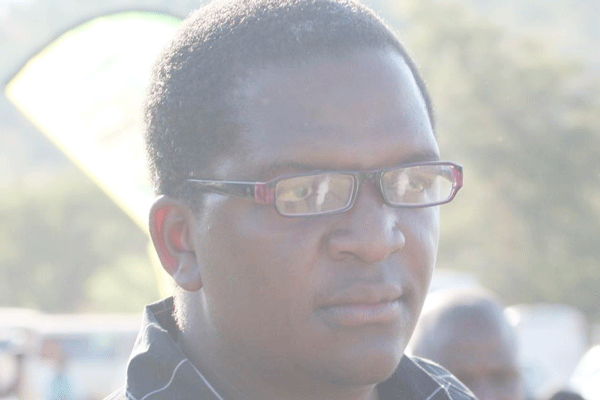
By Nevanji Madanhire
The death by his own hand of journalist Godwin Muzari at a young age of 40 brings to the fore one of the most neglected aspects of newsroom management —counselling.
I joined The Standard as editor early 2010 and found a young team whose average age was around 30 years. It was vibrant and everyone was trying their best to contribute to the production of the wonderful newspaper The Standard has become over the years.
One reporter struck me immediately not just because he had superstar looks, but also by his exuberance.
I have always had an open-door policy although few of my subordinates ever exploited it! But not with Godwin, he would come into my office almost on a daily basis, but especially on Fridays.
Every Friday he would come in with a cash requisition in hand; he wanted money to attend another gig.
At first I didn’t mind signing the requisitions whenever money was available. And whenever he came back from the gigs he would write wonderful stories.
He loved particularly out-of-town gigs, especially the Chimanimani Arts Festival. Godwin wouldn’t miss than one for anything.
- Chamisa under fire over US$120K donation
- Mavhunga puts DeMbare into Chibuku quarterfinals
- Pension funds bet on Cabora Bassa oilfields
- Councils defy govt fire tender directive
Keep Reading
But I began to get worried: it wasn’t a good lifestyle. One day he came into my office looking too wan for my comfort. He asked for a two-day rest.
When he came back to work I sat him down and got to know about the binge drinking that took place at these events.
“Next time I’d like you to take your wife with you!” I said out of the blue. He avoided eye contact. Another day he was quite visibly sick.
Godwin was not the only young journalist who loved fun; I think they all do. We all do. But at what cost?
I don’t know what drove him to make this ultimate form of self-chastisement — suicide. But whenever suicide is discussed, people, even friends, begin to say: “But why didn’t he tell us he’d problems?”
Journalists wish to live like superstars — that’s the image they mostly portray to the public. But that is a problem because journalists are in fact not superstars.
They are mostly woefully remunerated, but want to portray the swashbuckling image of the celebrities they cover. They want to keep the company of the music stars and the footballers whose company they crave.
But this comes with a plethora of problems.
It alienates the young journalist from his/her family who would naturally and quietly provide familial counselling.
The lifestyle demands money, which the young reporters now try to get by hook and by crook because their own salaries are inadequate. They become entangled with the superstars they cover who give them money often corruptly so they get press coverage.
They get indebted to these benefactors and this eventually affects their work as they now have to pander to the whims of their idols.
The little money they get from their employers is thrown into the hat to keep up appearances. In the end the young journalist is only living on borrowed time.
The first to suffer is the young family and the pressure begins to pile from home. The editors too see the deteriorating quality of stories which now conform to a certain template. The stories become little more than puff pieces for the celebrities.
Editors fall on the reporter like a ton of bricks; they have to because they too report to higher powers.
Unhappy both at home and at work, the nervous breakdown inevitably comes!
This is not about Godwin. I can count on two hands journalists who have succumbed to this nervous breakdown and committed suicide over the last two decades.
To ameliorate this sad situation, I aver that newsrooms should have systematic counselling processes that don’t begin and end with the editor. Often editors are young people themselves.
News organisations should have counsellors (just as they have press ombudsmen) who sit outside the newsroom but have cases referred to them. The editor ought to be able to identify cases which need attention.
If that might be deemed stigmatising, the counsellor could have a quarterly, or even a monthly session with the whole newsroom using inside information supplied by the editor.
The counsellor should be an experienced matron/patron who takes the role of the mother/father these young people now lack due to the nature of their work.
I’m writing this because Godwin’s demise hurt me so deep. RIP.
l Nevanji Madanhire is the former editor of The Standard and NewsDay.











